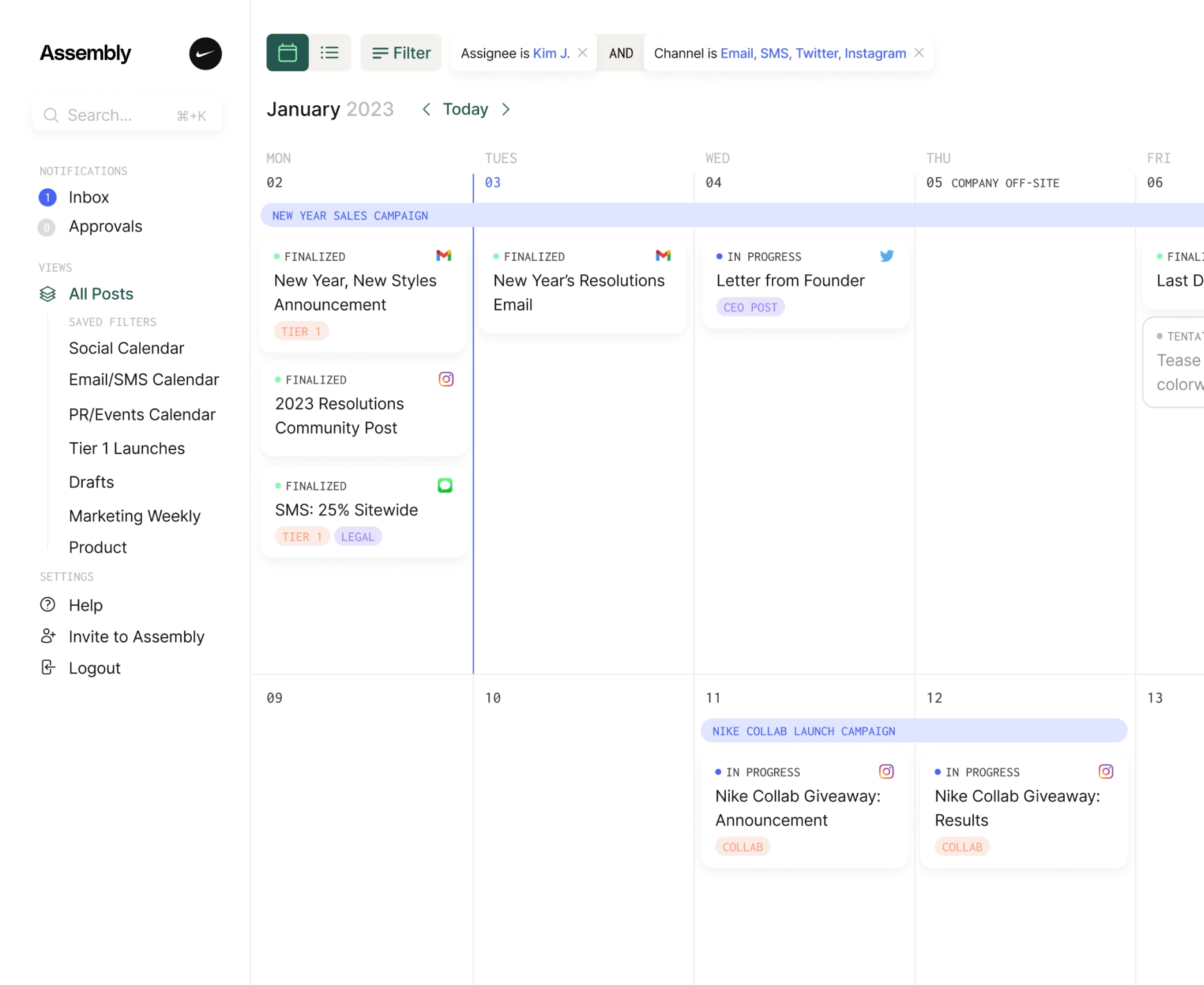
Interview with Darien Payton: CEO of Antidote

When you think of B2B marketing, you might think “boring, drab, uninspiring” — and we wouldn’t blame you. For years, the B2B playbook has been about spamming an audience with pitchfest webinars, lead forms, free downloadable workbooks. It’s a tried and tested playbook given it’s widespread adoption amongst almost every B2B company. But does that work well for new brands?For the new brand that’s looking to make a splash in the market, how can a brand effectively get out there via content or rather, storytelling that actually excites people. Today, we’re talking with one of the brightest minds in B2B social, Darien Payton from Antidote. Darien’s agency, Antidote, works with B2B SaaS startups on crafting their story and employ “taste” — a culmination of brand values, behaviors, visual identity because he believes there is no other differentiator today.
Tell us more about starting Antidote.
I started Antidote almost two years ago, a year and a half ago, two years in July. There's a long story, but Antidote is my second agency. The short version is I spent some time at B2B SaaS companies and all of them, I was the first person to either start the social function or the one person doing social.
I noticed a consistent trend. The marketing team was always hounded by the CEO to drive more pipeline, more M2Ls, etc. There was a lack of creative thought behind social, and social was treated as a lights-on task. Having had that experience and seeing a pattern across multiple B2B companies, I thought I could do something different. People were reaching out asking for advice, and that was the origin story of Antidote.
Our mission is to help brands develop and deploy taste. By "taste," we mean brand values, behaviors, visual identity, the things that make up your brand. We believe there is no other differentiator for B2B SaaS companies today. You can't differentiate on product because product parity takes two weeks now, maybe even faster with AI. Your real differentiator today is brand.
What kind of clients gravitate towards your agency?
We primarily work with e-commerce and commerce-tech companies. We can credit Tommy and Triple Whale, the OGs of B2B e-commerce social. At the time, Tommy and I were both working in the e-commerce space, and what they did at Triple Whale set the standard for B2B social. Even a year after he's gone, Triple Whale is still seen as the standard.
The other is fintech, primarily because B2B companies tend to be active on Twitter and LinkedIn. Fintech and finance and the entrepreneurial culture on Twitter attract those types of companies.
Let's say I'm a new B2B company looking to work with you. When's a good time to start getting active on social?
There are lots of paths. For early-stage companies, if you're a naturally gifted storyteller or have gotten good at it, then your best route is for the founder or co-founder to lead the charge on social. Tell the story of the brand, the principles around why you started your company, and why you make certain product decisions. Some examples of this are the founders of Basecamp (37signals), who lead their social presence with strong opinions.
If you're not that type of founder and don't know how to tell your story yet, the best thing is to bring in a freelancer part-time to help figure out how to tell the behind-the-scenes story and engage with the community. They can share behind-the-scenes content, jump on trends, and get involved with the community to build trust early on.
One thing we commonly hear is, "I don't know what to say. Is my story even unique?" What are some ways you tease those stories out or questions you ask to help founders?
Yeah, I believe all press is good press. When talking to an early-stage founder who doesn't know what to talk about, I ask them to pull up their calendar. We walk through their meetings, events, or tasks. Often, there are stories people don't remember because they're doing so much. Once you start talking about it and asking probing questions, you start to uncover stories. People don't realize this because they think they need something grandiose or they just forget.
How do you think about founder-led content versus brand social content?
We think about it as different stages, different approaches. Founder-led always works. Don't get me wrong. It always works. But there is something to be said of building a brand that people want to be part of, that people want to be associated with.
At a certain stage, your company needs to have a distinct identity outside of you.
And so what we want to do is build up the brand. And if you're early stage, build up the founder's social presence alongside the brand social presence. And the company, more importantly, has a culture that people want to be part of, that they want to work at, and they want to engage with.
That way, as the founder, if I take a step back, I take a vacation, or I step out of the company altogether, the company still has this existing, engaged, thriving culture. That's the biggest differentiator, and that's why we sort of approach it differently at different stages.
What's your take on memes for B2B companies?
So also if you search my Twitter for memes, I have a lot of hot takes on those too. So generally I think they're worth doing.
One thing people get wrong often, marketers get wrong, is that they think that because you are a later stage company or because you're a more serious company or in a more serious industry, that memes don't work for you. That may be true if it's genuinely not your company's culture, right?
Stripe never posts a single meme, ever. And I've looked at their page. It's not because they're enterprise necessarily.
What differentiates it is the company culture. And so I think that's what you need to be debating upon. Are we a serious company? What kind of customers do we have? And if you're like on platforms like TikTok, Snapchat, or Twitter, which is mainly the one for B2B social, the people that are on Twitter like memes. It just is what it is.
I think now the other side of that that conversation though, is you can't rely on memes holding up the entirety of your social strategy.
You have to at some point involve your product in the content. You have to get people excited about more than your humor. If you want people to buy your $40,000 ACV product, nobody's going to buy spend $40,000 a year on a product because you said something funny on Twitter. They have to actually believe that the product is going to do something for them. So you need to show that too. But don't think that just because you have a high price product or you're going after a serious industry or a larger customer base/larger size customer that you can’t also incorporate humor.
The other point is the difference between cultural and product memes. There are things you can say about your product that makes it a meme, and then there are things that are responses to culture. Sometimes there's debate about that.
You should almost always use product memes if you're on Twitter. If you're on TikTok, there aren't many B2B brands there, but on Twitter, you should almost always use product memes. Cultural memes are a more dicey space because you start weighing in on topics the company may not want to address or getting too reactive, which doesn't keep you creating the conversation. You start responding to conversations, and there's room for that, but the goal for every brand is to create and generate a conversation, not always respond to it. That's another angle.
Are webinars and lead magnets outdated or are they still in?
Oh god, you're going to make me lose all my customers. My opinion is they are not dead or bad; they are done improperly. No one wants to attend a webinar that's a pitch fest. No one wants to attend a webinar that's just a product demo or walkthrough. You should do that in an async video and put it on YouTube.
People are willing to attend informational sessions where they can have their questions answered, and the speakers aren't just regurgitating information they already share on social media. This is one of the difficulties with having so many creator brands—everyone's always sharing educational content. Once you have these webinars, there's nothing new to say. But people are willing to attend conversations if there's something helpful being taught.
In terms of eBooks and downloadable things, I always felt it was worthless to have people download guides. I think you should give the guides out for free, drive the traffic with ultimate guides, make it native free and ungated, and then gate the templates, the workbook, the things people actually want to use. The reason for that is you get false signals when you gate the guides. You think somebody is interested in your product or solving a problem right now, but they're not. They're just looking for information. But if they're downloading templates, workbooks, reports, and tools they can fill in and use, then that's a good indicator that an MQL is ready for a conversation.
How do you figure out what to focus on next with content - is it dictated by a higher-level strategy, or is it just intuition?
I am the person who's like, “I was in the shower this morning at 6am. And I thought about this random idea. Can we have it ready by nine?”. So it's a lot of intuition.
I do believe you need data to drive insights. I do not believe you follow the data blindly. Numbers don't lie, but they do tell half truths. In the case of Twitter, numbers are very often not right.
And then when you go and do a manual account, you find out that the numbers that you're seeing in platform are different between your analytics product, and then when you do a spreadsheet download, it’s different. You have to have an understanding of the audience, what they care about and be willing to trust your gut on some ideas.
For our clients though, we do have some sort of pillars that we try to follow. We ask ”Hey, what is the big idea?” We believe in having a big idea that we follow. And that sets us up for everything that we do for that brand. From there, the tactics, the ideas, how you execute is up to you. Platforms move fast. You cannot get bought into whatever you thought was going to work six months ago is going to be the thing that we should be doing today.
Ready to start growing on social media?
Assembly is an end-to-end social media management tool. Join 500+ marketers and agencies who have made the switch.






